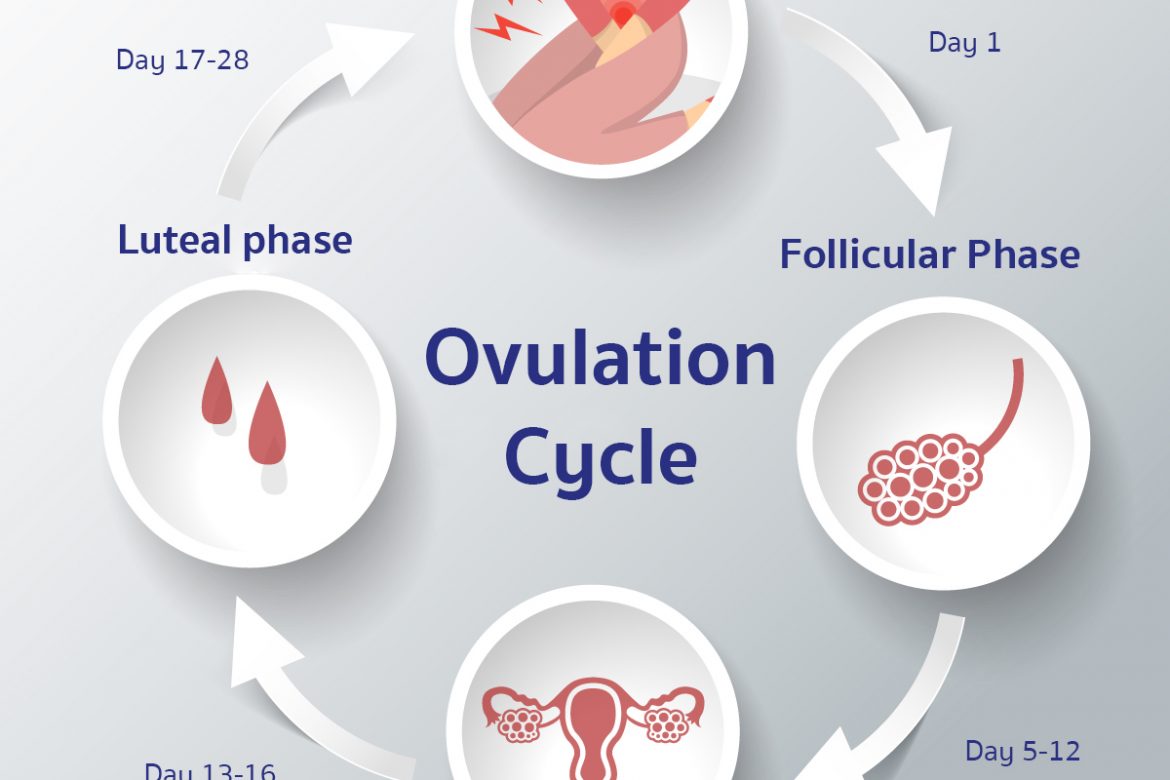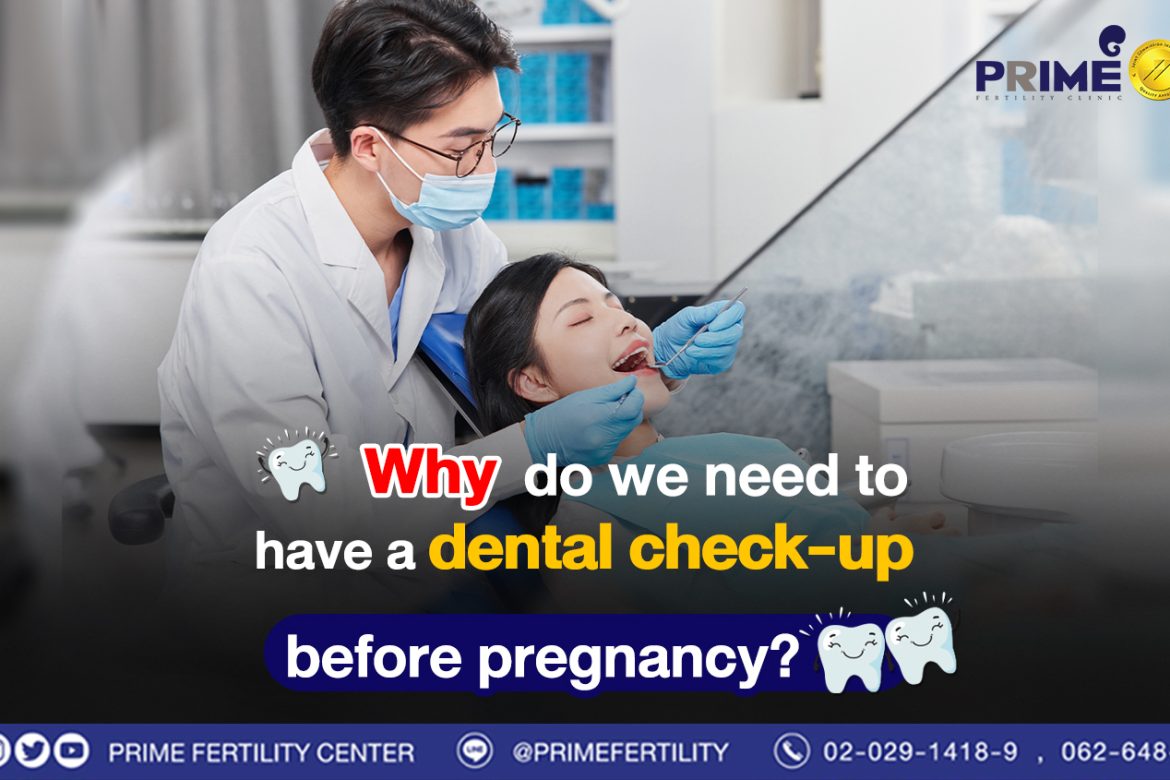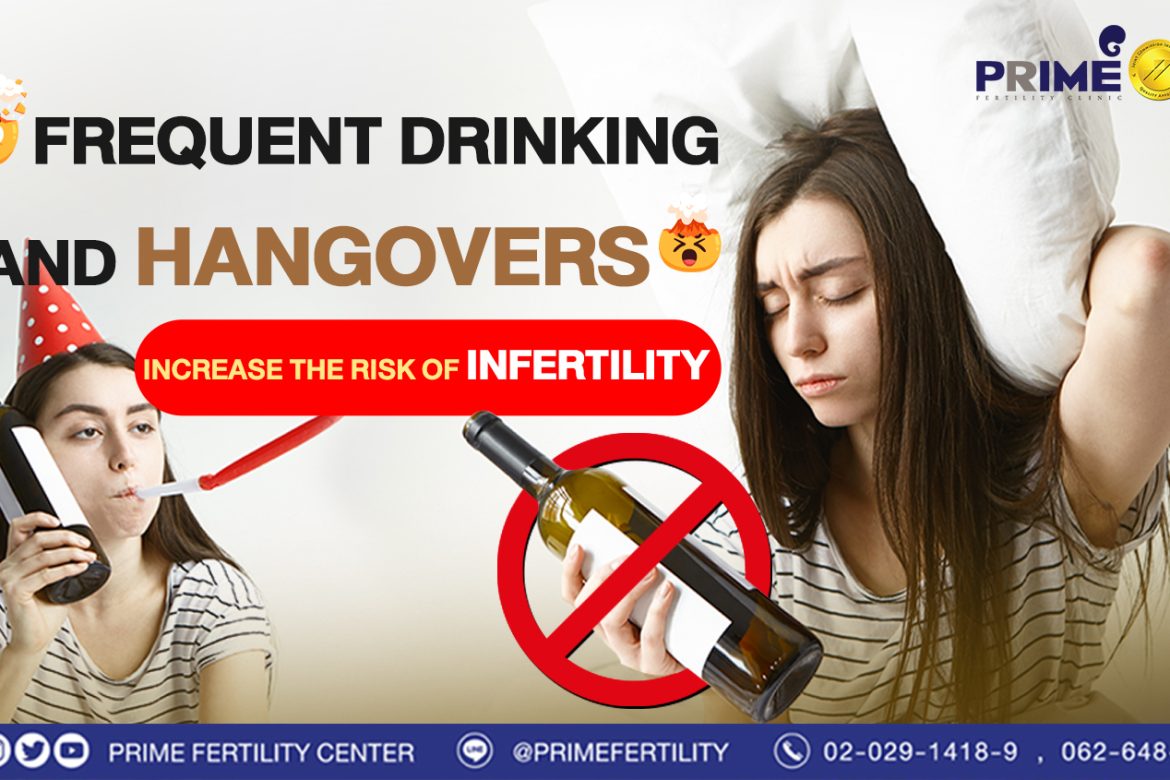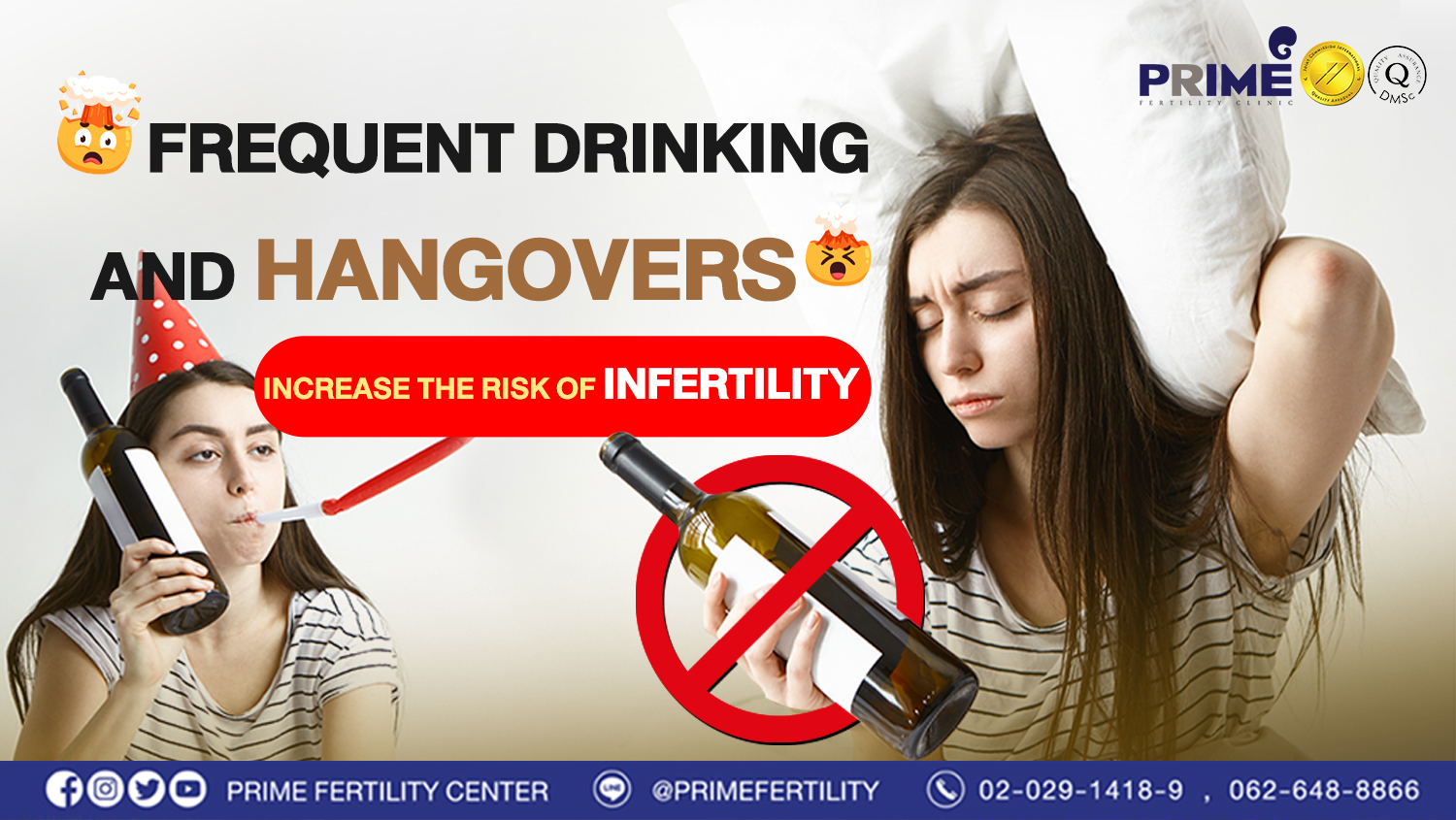When women reach puberty at the age of 9-12, they will have the ovulation every 21-35 days. During the first half of menstrual cycle, several follicles are growing up inside the ovary.
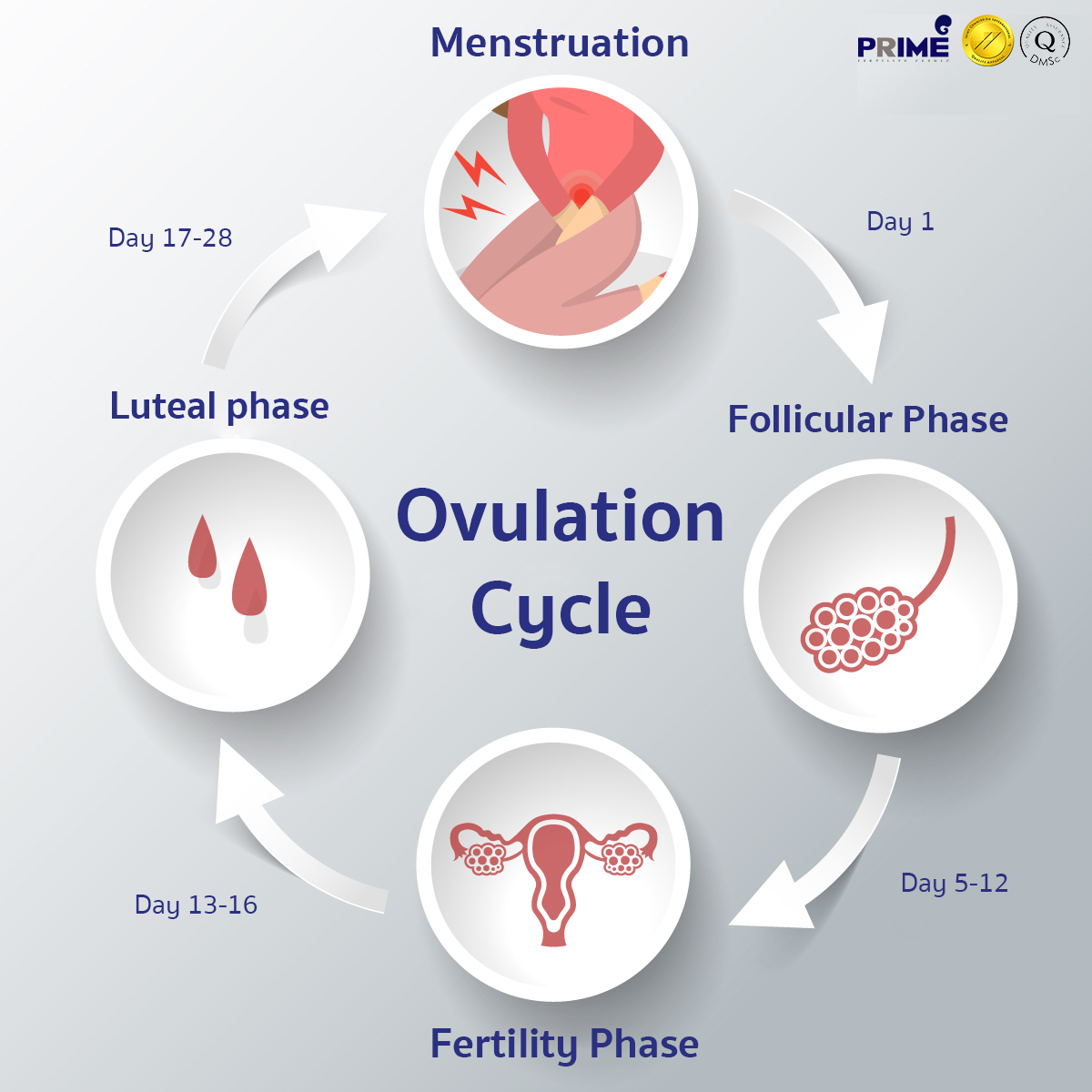
After that, only 1 egg will be matured and released from the ovary, waiting for combining with a sperm later on.
If the egg is successfully fertilized with a sperm, the fertilized egg will divide its cell to form a zygote then move from the fallopian tube to implant at the uterine cavity where a uterine wall is thicker due to the hormone’s stimulation in order to get ready for the embryo development. However, if the egg is not combined with a sperm within 24 hours after the ovulation, it will fade away. Therefore, the prepared endometrium will shed its lining as menstruation in 14 days or 2 weeks after the ovulation. Then the next ovulation cycle starts again, repeatedly every month until women reach their menopause accordingly.
Ovulation cycle timeline
- Menstruation
Day 1: Start vaginal bleeding - Follicular Phase (Preovulatory Phase)
Day 5-12: Several follicles in the ovary mature. - Fertility Phase (Ovulation)
Day 13-16: Only 1 egg is fully mature and released from the ovary then moves to the fallopian tube where it can be fertilized with sperm respectively. Fertile cervical mucus and breast tightness are the signs of ovulation. This is the perfect time for fertilization. - Luteal phase
Day 17-28: If the ovulated egg is not fertilized with sperm within 24 hours, it will fade away. Then the uterine lining will detach as menstruation.
–
Reference: Prime Fertility Center Co., Ltd.

